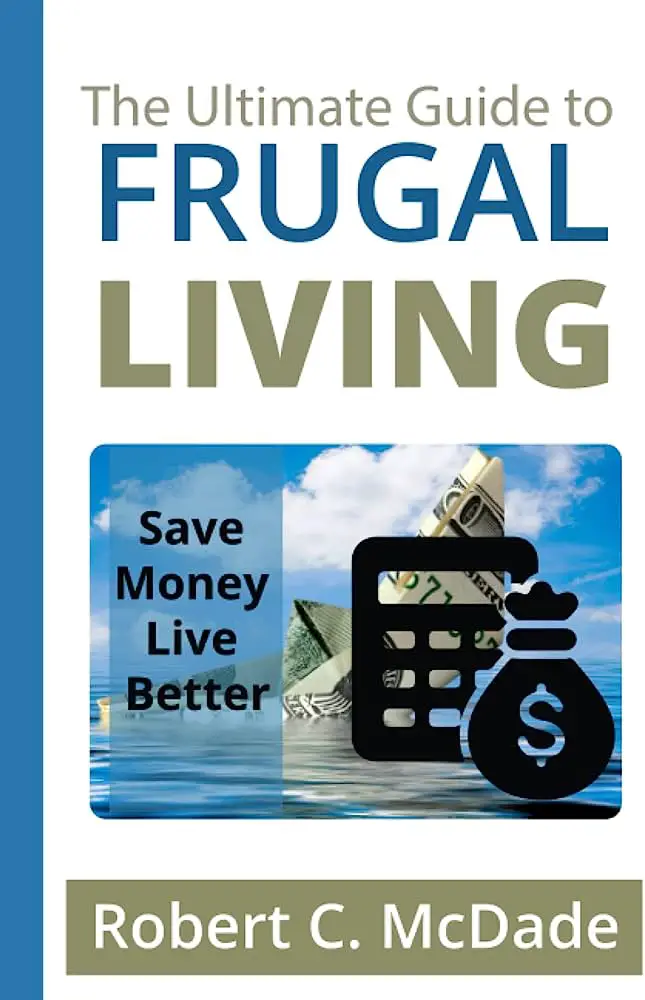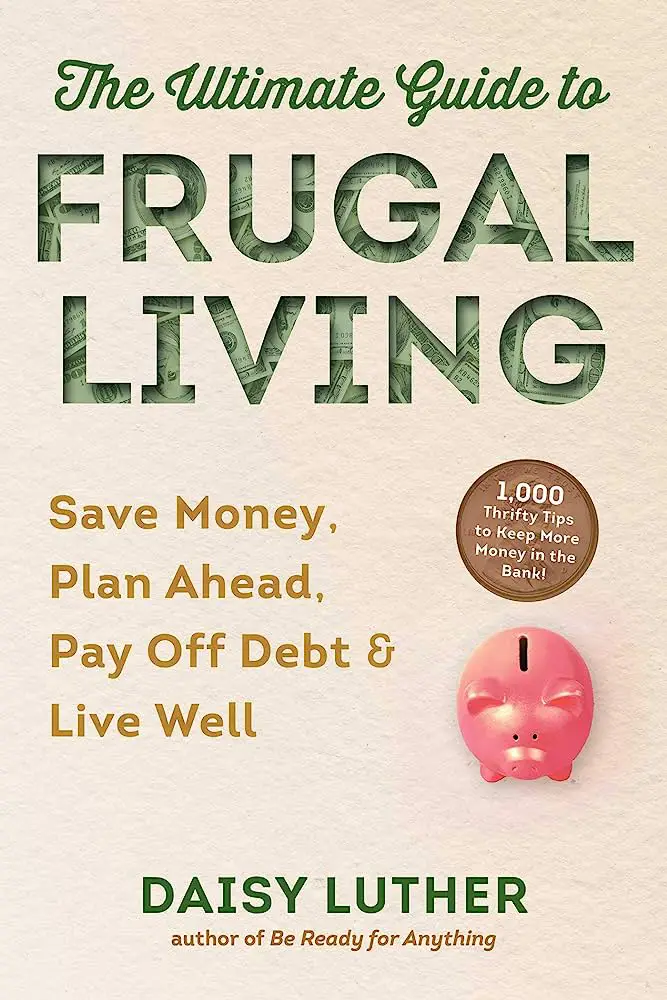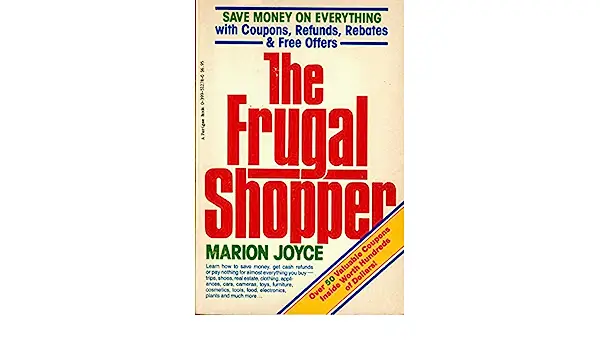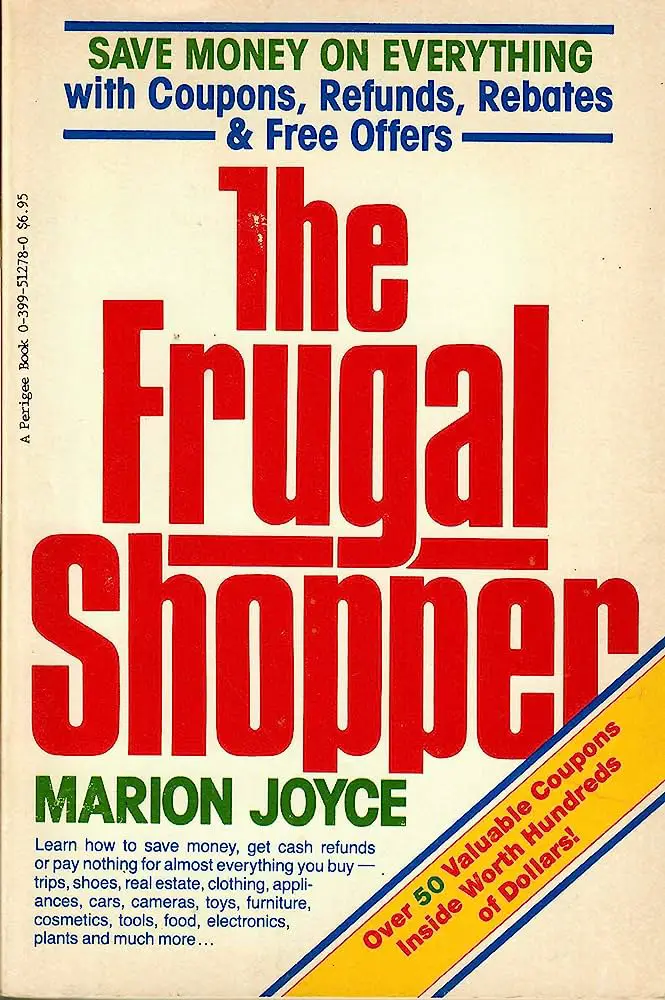Introduction
Welcome to “The Frugal Shopper’s Ultimate Guide to Saving Money”! In this guide, I’ll be sharing some valuable tips and strategies to help you avoid impulse purchases and become a savvy shopper. As someone who is passionate about frugal living, I understand the importance of making informed decisions with our hard-earned money. So, let’s dive in and learn how to shop smarter and save more!
Understanding Impulse Purchases
Before we delve into the tips and tricks, let’s take a moment to understand what exactly impulse purchases are. Impulse purchases are those unplanned and unnecessary items we buy on a whim, often driven by emotions rather than rational thinking. These spontaneous purchases can lead to financial stress and a sense of regret later on. That’s why it’s crucial to develop mindful shopping habits that prioritize value and long-term satisfaction.
Creating a Shopping List
One of the most effective ways to combat impulse purchases is by creating a shopping list before heading to the store. This simple practice will help you stay focused and prevent you from getting sidetracked by tempting items. Take some time to plan out your purchases in advance, based on what you truly need. Stick to the list and resist the urge to deviate, even if something catches your eye.
Differentiating between Needs and Wants
It’s essential to differentiate between needs and wants when shopping. Needs are items that are necessary for your survival or well-being, such as groceries or toiletries. Wants, on the other hand, are those discretionary purchases that bring you joy but are not vital. By prioritizing your needs over your wants, you can make more conscious decisions and allocate your funds wisely.
Researching Prices and Alternatives
Before making any significant purchase, it’s crucial to research prices and alternatives. Take the time to compare prices from different stores or websites, read reviews, and consider alternative options. By doing your due diligence, you can find the best deals and avoid overpaying for products or services.
Practicing Delayed Gratification
Finally, one of the most powerful ways to avoid impulse purchases is by practicing delayed gratification. If you still feel the urge to buy something after a few days or weeks, then it may be worth considering. Delaying the purchase allows you to evaluate whether it’s a genuine need or just a passing desire.
By following these tips and incorporating frugal shopping habits into your lifestyle, you can save money, reduce clutter, and make more intentional purchases. So, get ready to become a frugal shopper, and let’s start saving together!

The Frugal Shopper’s Guide to Avoiding Impulse Purchases
Understanding the Frugal Shopper’s Mindset
When it comes to saving money, adopting a frugal mindset is essential. As a frugal shopper, I prioritize making informed purchasing decisions that align with my long-term financial goals. This means avoiding impulsive buying tendencies and being mindful of how I spend my hard-earned money.
Identifying the Frugal Mindset
The frugal shopper’s mindset involves being resourceful, thoughtful, and intentional with each purchase. By carefully considering the value, quality, and practicality of an item, I ensure that I am getting the most out of my money. I research products, read reviews, compare prices, and even wait for sales or discounts before making a purchase. This approach helps me save significant amounts of money over time and prevent impulse purchases.
Benefits of Adopting a Frugal Lifestyle
Adopting a frugal lifestyle has numerous benefits beyond just saving money. By spending wisely, I am able to achieve financial stability, reduce debt, and build a strong foundation for my future. Additionally, frugality allows me to prioritize experiences and invest in things that truly matter to me, such as travel, education, or personal growth. Moreover, the frugal lifestyle promotes a sense of contentment and mindfulness, as I learn to appreciate the things I have rather than constantly seeking instant gratification through material possessions.
Difference Between Frugal Shopping and Being Cheap
It is important to note that there is a distinction between being frugal and being cheap. Frugal shopping involves making intentional choices based on value and quality, while being cheap focuses solely on spending as little as possible. Frugal shoppers understand the importance of balancing cost and value, whereas cheap individuals may sacrifice quality or disregard their needs to save a few dollars. By embracing frugality, I prioritize smart spending without compromising my well-being or the quality of the products I purchase.
By understanding the frugal shopper’s mindset, I am able to make better purchasing decisions, avoid impulse buys, and save money in the long run. Adopting a frugal lifestyle not only provides financial benefits but also cultivates a sense of purpose and mindfulness in my everyday life. So, let’s embark on this frugal shopping journey together! Happy saving!
Developing a Frugal Shopping Plan
As a frugal shopper, it is essential to develop a well-thought-out plan to save money and avoid unnecessary impulse purchases. By analyzing your current spending habits, setting a budget, creating a shopping list, and researching and comparing prices, you can become a savvy shopper who maximizes savings. Let’s dive into each of these steps in detail.
Analyzing your current spending habits
The first step in creating a frugal shopping plan is to analyze your current spending habits. Take a close look at where your money is going and identify areas where you can cut back. This could include reducing dining out expenses, limiting clothing purchases, or finding ways to trim your monthly utility bills.
Setting a budget for your shopping
Once you have identified areas where you can cut back, it’s crucial to set a budget for your shopping needs. Determine a realistic amount that you can afford to spend each month on groceries, household items, and personal necessities. Stick to this budget to avoid overspending and make conscious choices when making purchasing decisions.
One of the simplest yet most effective ways to save money is by creating a shopping list before heading to the store. Make a list of the items you need, based on your budget and immediate requirements. Stick to your list while shopping to avoid impulsive purchases that can blow your budget.
Researching and comparing prices
Before making any purchase, it’s important to research and compare prices to ensure you are getting the best deal. Use online resources, such as price comparison websites or apps, to compare prices at different retailers. Additionally, look for coupons, discounts, or sales that can further reduce the cost of your purchases.
By following these steps, you can develop a frugal shopping plan that will help you save money and avoid impulse purchases. Remember, being mindful of your spending habits and having a well-defined strategy is key to becoming a successful frugal shopper.

Tips for Finding the Best Deals
As a frugal shopper, I am always on the lookout for ways to save money and get the best deals. In this section, I will share some tips and strategies that have helped me save a significant amount of money over the years. From utilizing coupons and promo codes to exploring loyalty programs and rewards, these strategies can help you stretch your dollars further.
Utilizing coupons and promo codes
Coupons and promo codes are a fantastic way to save money on your purchases. Before making a purchase, I always check online for any available coupons or promo codes. Websites like frugaldude.org offer an extensive collection of coupons and promo codes for various retailers. Just a few minutes of searching can result in substantial savings.
Exploring loyalty programs and rewards
Signing up for loyalty programs is another effective way to save money. Many retailers offer exclusive discounts, rewards, and even cashback programs to loyal customers. By joining these programs, you can earn points or receive discounts on future purchases. I make sure to take advantage of these programs whenever I shop at my favorite stores.
Shopping during seasonal sales
Seasonal sales are an excellent opportunity to find amazing deals. Retailers often offer significant discounts during holidays and special occasions. Whether it’s Black Friday, Cyber Monday, or post-holiday clearance sales, keeping an eye on these events can lead to substantial savings. I always plan my purchases around these sales to take advantage of the best deals.
Checking for discounts from online retailers
Online retailers often offer exclusive discounts and promotions that are not available in physical stores. Before making a purchase, I compare prices online and check for any additional discounts or promotions. Websites like frugaldude.org are a great resource for finding the best deals from online retailers.
Considering second-hand and thrift store options
Shopping at second-hand stores and thrift shops is a great way to save money and find unique items. I have found some incredible bargains on clothing, furniture, and household items by shopping at these stores. Plus, it’s a sustainable choice that helps reduce waste and supports local charities.
By following these tips, you can become a savvy frugal shopper and save a significant amount of money. Remember to do your research, compare prices, and stay aware of any available discounts or promotions. Happy shopping!

Avoiding Impulse Purchases
Understanding the psychology behind impulse buying
As a frugal shopper, it’s important to understand the psychology behind impulse buying. We often find ourselves making unplanned purchases, driven by emotions and the desire for instant gratification. Retailers are well aware of this, using various tactics to lure us into buying things we don’t truly need. They capitalize on our impulsive tendencies by strategically placing tempting items near the checkout counters or bombarding us with attractive advertisements.
Avoiding emotional shopping triggers
To avoid falling into the trap of impulse buying, it’s crucial to recognize and avoid emotional shopping triggers. These triggers can vary from person to person and might include stress, boredom, or even feelings of inadequacy. Being aware of your own emotional triggers can help you resist the temptation to make unnecessary purchases. Instead of turning to shopping as a means of emotional relief, consider finding healthier outlets such as exercising, practicing mindfulness, or engaging in a hobby.
Implementing the 24-hour rule
When you find yourself eyeing a potential impulse purchase, implementing the 24-hour rule can be a helpful strategy. Before making a decision, give yourself a full day to contemplate whether the item is truly necessary. This cooling-off period allows you to distance yourself from immediate emotions and evaluate the purchase with a clear mind. Often, you’ll find that after 24 hours, the initial desire to buy has diminished, and you can make a more rational decision.
Practicing mindful shopping
Mindful shopping involves being intentional and conscious of your spending habits. Before heading to the store or making an online purchase, ask yourself if you genuinely need the item or if it’s merely a want. Consider whether the purchase aligns with your long-term goals and values. By practicing mindfulness, you can avoid unnecessary expenses and make conscious choices that support your frugal lifestyle.
Using shopping apps and browser extensions to block impulse purchases
There are various shopping apps and browser extensions available that can help you resist the urge to make impulse purchases. These tools can block certain websites, restrict spending, or provide reminders to think twice before buying. Take advantage of these technological resources to create a barrier between yourself and impulsive spending temptations. Utilizing such tools can empower you to maintain financial discipline and save money in the long run.
By understanding the psychology behind impulse buying, recognizing emotional shopping triggers, implementing the 24-hour rule, practicing mindful shopping, and utilizing shopping apps and browser extensions, you can successfully avoid impulse purchases and stay on track with your frugal lifestyle goals. Remember, being a frugal shopper means being intentional, thoughtful, and disciplined with your spending. Happy saving!

Frugal Shopping Strategies for Different Products
Saving Money on Groceries and Meal Planning
As a frugal shopper, one of the best ways to save money is by adopting smart strategies for grocery shopping and meal planning. Instead of wandering aimlessly around the supermarket, I meticulously plan my meals for the week ahead. This allows me to create a detailed shopping list and avoid unnecessary impulse purchases. By sticking to my list and shopping with intention, I am able to save a significant amount of money on groceries each month.
Another helpful tip for frugal grocery shopping is to take advantage of coupons and sales. I carefully browse through store flyers, clip coupons, and strategically plan my shopping trips around discounted items. Buying in bulk and comparing prices between different brands are additional tactics I use to stretch my grocery budget.
Frugal Shopping for Clothing and Fashion Items
When it comes to clothing and fashion, there are countless ways to shop smart and save money. One of my favorite strategies is to shop during seasonal sales or wait for end-of-season clearance events. This allows me to snag great deals on clothing items that I love without breaking the bank.
Thrifting and shopping at consignment stores are also excellent alternatives to purchasing new clothing at full price. Not only do I find unique pieces, but I also get them at a fraction of the cost. By embracing a minimalist mindset and carefully curating my wardrobe, I am able to save money while still looking stylish.
Tips for Affordable Home Decor and Furniture
Creating a cozy and inviting living space doesn’t have to be expensive. When it comes to home decor and furniture, I prioritize quality and affordability. Thrift stores, yard sales, and online marketplaces are gold mines for finding budget-friendly items. I love upcycling furniture by giving it a fresh coat of paint or reupholstering it to match my style.
Shopping at discount home decor stores or waiting for seasonal sales in larger retail stores are also great ways to find affordable decor pieces. By being patient and strategic in my purchases, I am able to create a beautiful and inviting home without breaking my budget.
Budget-Friendly Electronics and Gadgets
Finding deals on electronics and gadgets can be a daunting task, but as a frugal shopper, I’ve learned a few tricks. Firstly, I prefer to buy refurbished or pre-owned electronics, as they are often significantly cheaper than brand new items. It’s important to research the product thoroughly and buy from reputable sellers to ensure quality.
I also keep an eye out for discount events like Black Friday or Cyber Monday, where retailers offer substantial discounts on electronics. Additionally, waiting for newer models to be released often leads to price drops on older models. By staying informed and being patient, I’m able to save money on technology without sacrificing quality.
Thrifty Ways to Travel and Book Accommodations
Traveling on a budget doesn’t mean sacrificing amazing experiences. When planning a trip, I always start by searching for the best deals on flights and accommodations. Using comparison websites and booking in advance are two foolproof methods for saving money.
Instead of staying in expensive hotels, I explore alternative options such as hostels, vacation rentals, or even house swaps. These options not only provide significant savings but also offer unique and memorable experiences.
By implementing these frugal shopping strategies for different products, I’ve been able to save money without compromising on quality or style. Remember, careful planning, patience, and a willingness to explore alternative options are the keys to becoming a frugal shopper. So go ahead, embrace the frugal lifestyle, and watch your savings grow!
Smart Ways to Save Money While Online Shopping
Comparing prices on various online platforms
When it comes to online shopping, one of the easiest ways to save money is by comparing prices on various platforms. Before hitting that “Buy Now” button, I always make it a point to check different websites to ensure I’m getting the best deal possible. It may take a few extra minutes, but trust me, it’s totally worth it! By doing a quick search, you can find the same product for a lower price on a different website, saving you a few bucks in the process.
Using cashback and rebate websites
Another great way to save money while shopping online is by utilizing cashback and rebate websites. These platforms offer a percentage of your purchase back as cash or provide rebates on specific products. All you need to do is sign up, click through their links when making a purchase, and reap the benefits. It’s like getting paid to shop! So why not take advantage of this easy way to put some extra money back in your pocket?
Finding free shipping options
Shipping costs can quickly add up, especially if you’re an avid online shopper like me. That’s why I always keep an eye out for free shipping options. Many online retailers offer free shipping when you hit a certain spending threshold or have specific promotions. By opting for free shipping, you can easily save a few dollars on each purchase. So next time you’re about to check out, make sure to look for any free shipping offers to keep your wallet happy.
Subscribing to newsletters for exclusive discounts
If you’re someone who loves a good deal, subscribing to newsletters from your favorite online stores is a must. These newsletters often provide exclusive discounts and coupon codes that are only available to subscribers. So instead of scouring the internet for coupons, let those deals come directly to your inbox. Your future self will thank you when you score that amazing discount on your next online shopping spree.
Avoiding online shopping scams
Although online shopping offers convenience and savings, it’s important to stay vigilant to avoid scams. Always make sure to shop from reputable and secure websites. Look out for secure payment options and check for customer reviews to ensure legitimacy. Additionally, be cautious of deals that seem too good to be true. Remember, if something feels off, it’s better to be safe than sorry.
By following these smart ways to save money while online shopping, you’ll become a frugal shopper in no time. Happy shopping and even happier saving!

The Frugal Shopper’s Ultimate Guide to Saving Money
Frugal Shopping for Special Occasions
Budget-friendly gift ideas
Are you tired of spending excessive amounts of money on gifts for birthdays, anniversaries, and other special occasions? Well, fear no more, because I have some great budget-friendly gift ideas for you! Instead of splurging on expensive items, consider giving personalized gifts that are both heartfelt and affordable. Handmade crafts, photo albums, or even a simple handwritten letter can make a lasting impression without breaking the bank. You can also explore thrift stores or online marketplaces for unique and inexpensive second-hand items that are sure to delight your loved ones.
DIY decorations and party supplies
Hosting a party can be a lot of fun, but the cost of decorations and party supplies can quickly add up. Luckily, there are plenty of creative and budget-friendly ideas for DIY decorations that will still impress your guests. From homemade paper banners and streamers to repurposed mason jars as centerpieces, the possibilities are endless! Additionally, consider renting or borrowing party supplies, such as tables, chairs, and linens, instead of buying them new. This not only saves you money but also reduces waste and benefits the environment.
Planning affordable weddings and engagements
Weddings and engagements are undoubtedly special moments in our lives, but they can also come with a hefty price tag. However, with some frugal planning, you can have a memorable and affordable celebration. Consider having a smaller guest list or getting married during the off-season to save on venue costs. Opt for DIY wedding invitations, decorations, and even a homemade wedding cake. You can also explore affordable wedding dress options such as sample sales, consignment shops, or even renting. By taking these frugal steps, you can still have a dream wedding without breaking the bank.
Frugal shopping for holidays and celebrations
Holidays and other celebrations often entail additional expenses, from gifts to decorations and food. However, there are numerous ways to save money while still enjoying these special occasions. Start by creating a budget and sticking to it. Look for sales and discounts before making any purchases, and consider shopping online for the best deals. Plan ahead and buy decorations and supplies during post-holiday sales for the following year. Finally, don’t underestimate the power of homemade gifts and baked goods, which not only save you money but also add a personal touch to your celebrations.
Remember, being frugal doesn’t mean sacrificing the joy of special occasions. With a little creativity and planning, you can celebrate in style while still saving money. So why not give these frugal shopping tips a try and make your next special occasion even more memorable? Happy saving!
Embracing Minimalism in Your Shopping Habits
Understanding minimalism as a frugal lifestyle choice
Hey there! As the founder of frugaldude.org, I’m all about embracing a frugal lifestyle to save as much money as possible. One aspect of frugality that often goes hand in hand with saving money is minimalism. It’s not just a buzzword; it’s a way of life that can benefit your financial health. Let’s dive deeper into how you can incorporate minimalism into your shopping habits!
Decluttering and organizing your living space
First things first, let’s tackle the clutter in your home. It’s time to declutter and organize your living space. Start by going through your belongings and identifying items you no longer need or use. Trust me, getting rid of the excess can be liberating. Consider selling, donating, or even recycling these items to give them a new purpose.
Once you’ve decluttered, it’s time to organize. Invest in storage solutions that will help you keep your belongings neatly organized. This not only saves you money by preventing unnecessary purchases, but it also creates a calming and enjoyable living environment.
Buying and owning less for a simpler life
Now that your living space is clutter-free, let’s talk about adopting a buying and owning less mindset. The goal here is to simplify your life by focusing on what truly brings you joy and serves a purpose. Before making a purchase, ask yourself if you genuinely need the item or if it will add value to your life. By avoiding impulse purchases, you’ll save money and avoid accumulating unnecessary items.
Remember, quality over quantity matters. Instead of buying multiple low-quality items, invest in a high-quality product that will last longer. This way, you’ll save money in the long run by not having to replace inferior items frequently.
To wrap it up, embracing minimalism in your shopping habits is a smart way to save money and live a simpler life. By decluttering, organizing, and being mindful of your purchases, you’ll not only improve your financial health but also create a more peaceful and fulfilling living environment. So start today and make frugal living a part of your everyday life!
Impacting the Environment through Frugal Shopping
Choosing sustainable and eco-friendly products
As a frugal shopper, my goal is not only to save money but also to make a positive impact on the environment. That’s why I believe it is crucial to choose sustainable and eco-friendly products whenever possible. By opting for items that are ethically made, organic, or have a minimal carbon footprint, I can reduce my contribution to pollution and support businesses that prioritize environmental responsibility.
When shopping for clothes, I look for pieces made from sustainable materials such as organic cotton, hemp, or recycled fabrics. Not only are these choices better for the planet, but they also tend to be more durable, saving me money in the long run. Additionally, I try to avoid products with excessive packaging, as it generates unnecessary waste. Instead, I opt for items that come in minimal or recyclable packaging, helping to reduce the amount of garbage sent to landfills.
Reducing waste through mindful shopping
Mindful shopping is another essential aspect of frugal and environmentally friendly shopping. One way I minimize waste is by buying only what I need. Before heading to the store, I create a detailed shopping list and stick to it, avoiding impulsive purchases that often end up unused and wasted. By practicing this discipline, I not only reduce my spending but also contribute to reducing waste.
Additionally, I have incorporated reusable alternatives into my daily routine. For instance, I carry a reusable water bottle and shopping bags to avoid single-use plastics. I also make a conscious effort to buy in bulk when feasible, as it reduces packaging waste and often offers significant cost savings. These small changes have not only saved me money but also helped me reduce my ecological footprint.
Supporting local and ethical businesses
Part of being a frugal and responsible shopper is supporting local and ethical businesses. By choosing to buy from small-scale, locally-owned establishments, I help sustain the local economy and reduce transportation-related carbon emissions. I also prioritize brands that uphold ethical practices, such as fair trade and cruelty-free certifications. These choices reflect my commitment to consuming responsibly while still finding great deals.
being a frugal shopper means more than just saving money. It means actively choosing sustainable and eco-friendly products, reducing waste through mindful shopping, and supporting local and ethical businesses. By incorporating these practices into my daily life, I not only make a positive impact on the environment but also achieve significant savings. So, let’s all join the movement and shop in a way that not only benefits our wallets but also the planet we call home.
Maintaining Frugal Shopping Habits in the Long Run
Overcoming challenges and temptations
In the journey towards a frugal lifestyle, there will inevitably be challenges and temptations along the way. As a frugal shopper myself, I have encountered various obstacles that test my determination to save money. However, I have learned valuable strategies to overcome these hurdles and stay on track.
One common challenge is the allure of impulse purchases. We are all guilty of being enticed by flashy advertisements or alluring store displays. But fear not! By implementing a few simple techniques, you can resist these temptations. First, make a shopping list and stick to it. This will help you stay focused and avoid unnecessary purchases. Additionally, consider waiting 24 hours before buying anything that isn’t on your list. This will give you time to reflect on whether the item is truly essential.
Reevaluating and adjusting your frugal shopping plan
As we progress on our frugal shopping journey, it is crucial to periodically reassess our approach. Situations change, priorities shift, and new opportunities arise. Therefore, it is essential to reevaluate and adjust our frugal shopping plan accordingly. Take the time to review your spending habits and identify areas where you can make further improvements. Perhaps there are certain expenses that are no longer necessary or ways you can cut costs even further. By being proactive and adaptable, you can ensure that your frugal shopping habits remain effective and aligned with your current needs.
Celebrating milestones and achievements
While the ultimate goal of frugal shopping is to save money, it is important to acknowledge and celebrate the milestones and achievements along the way. Take pride in the progress you have made and treat yourself occasionally. Rewarding yourself for sticking to your frugal habits can help maintain motivation and prevent burnout. However, it is crucial to celebrate responsibly. Find creative and affordable ways to treat yourself, such as indulging in a homemade spa day or enjoying a nature hike. Remember, frugality doesn’t mean deprivation, but rather finding fulfillment within your means.
By overcoming challenges, regularly reevaluating your plan, and celebrating your achievements, you can successfully maintain your frugal shopping habits in the long run. This will not only save you money, but also provide a sense of accomplishment and empowerment. So, take these strategies to heart and continue your frugal shopping journey with confidence!
Conclusion
Taking Control of Your Finances
In conclusion, living a frugal lifestyle does not mean sacrificing the things you love. With some patience, planning, and determination, you can easily save money and avoid unnecessary impulse purchases. By following the tips and strategies mentioned in this guide, you can become a savvy and frugal shopper.
Budgeting and Planning
One of the most important aspects of frugal shopping is budgeting and planning. By creating a monthly budget and sticking to it, you can prioritize your expenses and avoid overspending. Take the time to plan your purchases in advance, making a list of the items you truly need and sticking to it. This helps you avoid impulse purchases and saves you money in the long run.
Comparison Shopping
Another key strategy for saving money is comparison shopping. Before making a purchase, take the time to research and compare prices from different retailers. Look for sales, discounts, and promotional offers to ensure you are getting the best deal possible. Utilize online resources, such as price comparison websites or apps, to easily find the lowest prices. By being a smart shopper, you can save a significant amount of money over time.
One of the biggest challenges when it comes to saving money is avoiding impulse purchases. To combat this, practice the 24-hour rule. When you feel the urge to make an impulse purchase, wait for at least 24 hours before making a decision. This helps prevent buyer’s remorse and allows you to evaluate if the purchase is truly necessary or just a fleeting desire. Additionally, consider implementing a cash-only policy for non-essential purchases. By only using cash, you are more likely to think twice before spending money on unnecessary items.
By incorporating these strategies into your shopping routine, you can become a frugal shopper and save money. Remember, being frugal is not about depriving yourself of things you want, but rather making intentional and wise decisions with your finances. So take control of your budget, plan your purchases, and avoid those impulse buys. Your wallet will thank you!
